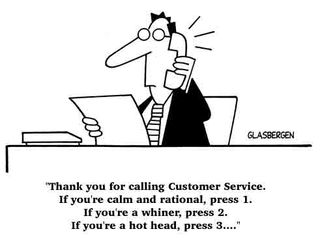I recently came across an article that
reinforces many of the principles I believe to be true regarding
effective recruiting. Steven Lowisz does
a great job of succinctly summarizing the parallels between effective recruiting and
effective sales.
 Since many of the hiring managers in the real estate industy started out their careers as sales professionals (ie. agents), the connection between these two activities will feel familiar. The skills that once made you a great salesperson will now help you become a more effective recruiter.
Since many of the hiring managers in the real estate industy started out their careers as sales professionals (ie. agents), the connection between these two activities will feel familiar. The skills that once made you a great salesperson will now help you become a more effective recruiter.
In this two-part series, I will discuss five steps to effective
recruiting that also apply to sales. Managers will get a two-for-one benefit in this discussion–insight for recruiting and insight for coaching agents on the sales process.
I believe these ideas are also helpful for the "first responders" in the recruiting process (what we call recruiting coordinators). It is important that the candidate experiences a consistent set of best practices from their first contact with your organization to the face-to-face interview.
1. Developing
the Relationship: This is the time that the warming-up events occur before
the serious selling begins. This includes how you introduce yourself and how
you begin the conversation. Candidates have stated that it’s during the first
two minutes of the call that they form crucial initial impressions that
influence the rest of the recruiting process.
 The recruiting coordinators are on the frontline with the HiringCenter leads. They are the first to start building the relationship between the
The recruiting coordinators are on the frontline with the HiringCenter leads. They are the first to start building the relationship between the
candidate and the company. I’ve found
most of the candidates who are contacted within the first 24 hours after
applying are genuinely appreciative of the responsiveness and information that
is shared. After the initial screening
the candidate is then introduced to the manager who starts to build their own
relationship with the candidate.
2. Creating/Identifying
the Need: Every sale involves identifying a need that the candidate is
often unaware of by asking questions. This is much more than a simple
collection of data. Identifying or creating the need is the most important of
all selling and recruiting skills. Recruiters who are the most effective during
this investigative stage are most likely to be the highest performers.
Recruiters with poor investigative skills generally create candidates who
ultimately do not accept the position once offered.
Here
is where a little finesse comes into play.
Just asking for one’s work history is not enough. Of course it's important, but
falls short of effective screening.
Take
it a step further and ask what it is that they enjoy about their current
career/position…listen. Then ask what it is that they don’t care for….listen. Then compare and contrast how a career in
real estate would address those observations in their favor.
For example, a candidate may say “I don’t
like being behind a desk all day” or “There is a lack of advancement” or “I
really feel micromanaged.” All of
those observations are non-issues as an agent.
As you capture the frustrating aspects of their current job and gently suggest how these issues may be solved by transitioning to a real estate career, the need for an interview with the hiring manager will be easier to sell. Remember, that is the primary function of the recruiting coordinator.
Also, when similiar questions are later asked by the hiring manager, he/she will be in a better position to build upon the groundwork that has been laid earlier in the process.
In
my next installment I will discuss the last three steps critical to the
recruiting process.
Join the WorkPuzzle Discussion at the Tidemark Online Community (TMOC)
Engage in the WorkPuzzle discussion by joining the TMOC private social network. Commenting on a public blog like WorkPuzzle can be a little intimidating, so why not join the discussion inside the privacy of the TMOC discussion group?
By joining TMOC, you'll get to see who else is in the group and your comments will only be seen by those whom you trust. Joining TMOC is quick, easy, and free (no kidding…this takes less than 2 minutes). To get started, click here.
Already of a member of TMOC? If so, join the WorkPuzzle Dialog Group by clicking on the WorkPuzzle Group icon on the left side of your TMOC homepage. Questions? Email the WorkPuzzle editor (workpuzzle@hiringcenter.net) and we'll walk through the process.
 Editor's Note: Lee Gray is the Senior Account Manager at Tidemark Inc. Lee is a guest contributor to WorkPuzzle. Comments or questions are welcome. .
Editor's Note: Lee Gray is the Senior Account Manager at Tidemark Inc. Lee is a guest contributor to WorkPuzzle. Comments or questions are welcome. .
















